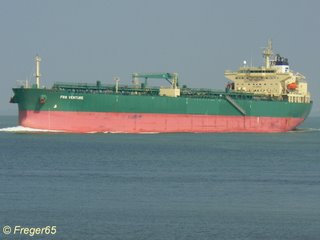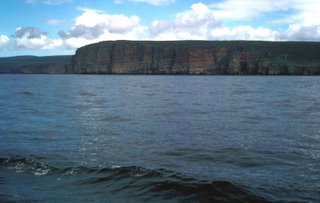I turned to Wikipedia and learned about the firth because of this news article in the Gardian this morning: Two crewmen were killed and another seriously injured yesterday after their oil tanker was hit by huge waves in the Pentland Firth, one of the world's most notorious stretches of water. Again, according to Wikipedia, the Pentland Firth, which is actually more of a strait than a firth, separates the Orkney Islands from Caithness in the north of Scotland.
The Gardian reports that "The men were believed to have been standing on the deck of the 42,000-tonne tanker when it was caught in a gale force eight storm and buffeted by waves over 20 feet high. The ship, the FR8 Venture, contacted Shetland coastguard shortly after midday. 'The ship may have got hit by a freak wave.' said the coastguard."
It is mind boggling to think a beautifully peaceful and tranquill place like this would ever have freaque waves that can batter a huge oil tanker like that? It just attest the notion that freaque waves can happen at any place and at any time!
UPDATE November 13, 2006:
Here's a picture of the ship FR8 Venture:

Again it is incomprehensible that standing on the deck of this massive ship can be unsave, how freak can a real freaque wave be!?
UPDATE July 19, 2007:
The Marine Accident Investigation Branch (MAIB) has issued report into this case. Please see my new post.

No comments:
Post a Comment